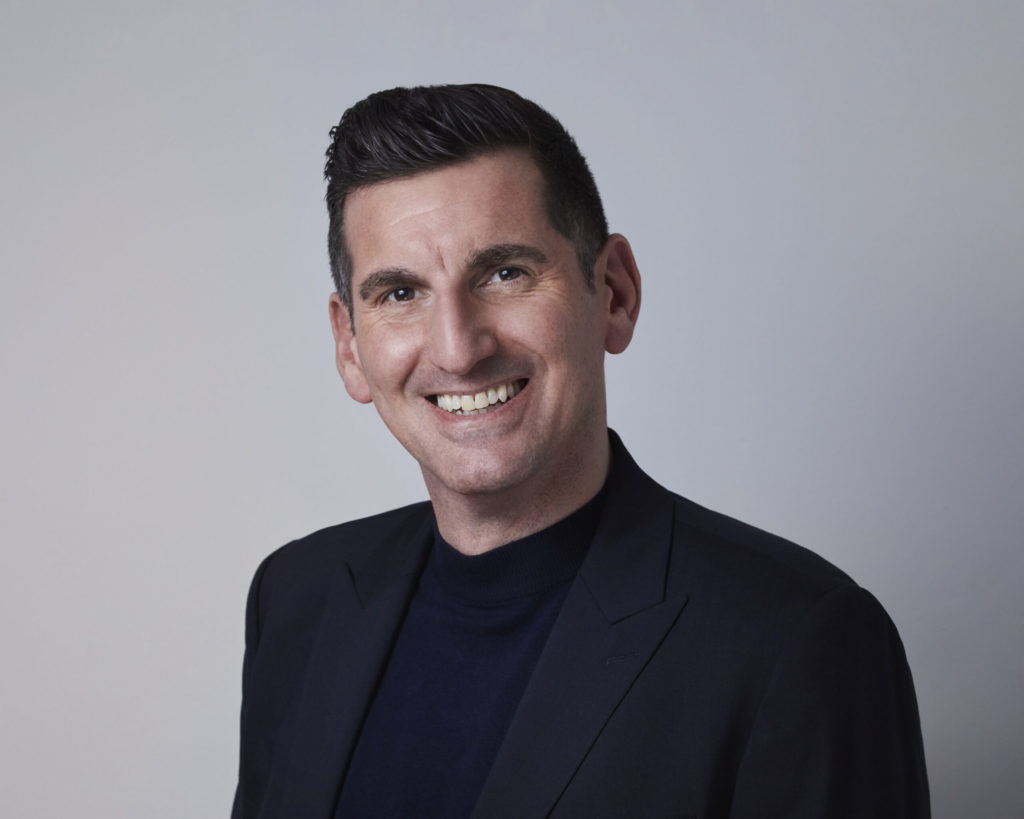By James Clifton, MISSION Group Chief Executive
How’s your day? I don’t mean that in the usual sense, as a proxy for your mood, but in the more literal sense of what are your daily habits and rituals and are they conforming to their normal pattern?
I ask because most of us have had our normal daily routine turned upside down due to the constraints of our bizarre Covid 2020 lives. And it looks like the disruption is going to be with us for some time yet. Do not adjust your set: normal service may never be resumed.
It’s frustrating because humans are, largely creatures of habit. We tend to find comfort in routines, be they micro or macro, and the structure these lend our lives allowing us to hang other things off them. For example: gym on Tuesdays and Thursdays, pizza on Wednesdays, movies on Saturdays. Whatever the specific choices, even the most anarchic soul usually has some habits they repeat, even if it’s just parking in the same spot at their local Tesco.
If you’re of a certain age you may remember the late-period ABBA track, “The Day Before You Came” which documents the passive surrender to a habitual lifestyle. It doesn’t mean the person described is boring or unimaginative. Just that they’ve found a groove that makes things work, that triggers a teeny dopamine release, that makes them happy or at least content and helps the day glide a little more smoothly leaving them time to deal with the random stuff life presents.
These become our habits. They are part of what makes us uniquely us. People know us by them, for good or bad. And of course, brands get woven into our habits because they are part of our life. The Starbucks espresso every morning. The Pret BLT every lunchtime. The Greggs donut when we’re feeling naughty.
Brands recognise our habits from their sales data. They predict them, nurture them and ultimately thrive off them. What else is brand loyalty but a habit, borne of repetition and preference, sometimes to such an extent that to favour another brand can feel like treachery, provoking feelings of guilt and remorse?
But most of our old habits have been shattered into a million pieces since March. And the brands that relied on those habits have seen the very foundations of their business shift in ways that they could not control, let alone predict. The impact on both our mental health and on the economic health of entire business sectors – from restaurants to transport, entertainment to fashion – has been devastating.
Of course, we’re now over seven months into this new reality. That’s long enough for us to have developed new habits and routines which are beginning to feel comfortingly familiar, no matter how much we might consciously try to resist.
A recent paper, “Habits Without Values,” recently published in Psychological Review concludes, from a study of “digital rodents”, that forming habits is a matter of simply repeating a behavior until it sticks, no matter how little pleasure you derive from it.
You may have managed to carry some of your old routines into your new reality but it’s unlikely that too many have survived. Instead, you probably have new proxies for old favourites: a Peleton bike, say, taking the place of a visit to the gym; an Amazon Prime delivery of a Whole Foods dinner replacing a visit to a local restaurant on date night. Little things but, together, they add up to seismic change.
What’s missing is a whole bunch of brands – Pret, Yo!, Starbucks, TFL – that used to make up the brand topography of our personal space for many people. There are plenty of others, from fast fashion brands who used to satisfy the nation’s desire for a new “look” to the pub and restaurant chains that used to facilitate our socialising and relaxation hours. All MIA in our WFH world.
The longer it goes on, the more comfortable we get with it, thanks to the in-built human trait of adapting to survive. According to a survey of global workers by Microsoft earlier this year, 71% of people expressed a desire to continue working from home, at least part time, after the pandemic is over. Other studies in the US and Europe have shown similar trends. We may miss some of our old ways, but we’ve developed new habits that make the current context more bearable.
The question is: if we ever do go back to the way things were, will we – can we – pick up our old habits again? Have our new Covid habits become our installed operating system of life and our old ways permanently overwritten?
Malcolm Gladwell’s concept of 10,000 hours of practice, first documented in his 2008 book Outliers, to achieve expert status in a discipline, has enjoyed widespread adoption inspiring everything from t-shirts, to bespoke 10,000 hour clocks, to a hit song by Dan + Shay.
Whilst climbing aboard a Peleton bike for a sweaty session every other day is probably not quite the “dedicated practice” Malcolm had in mind, I would argue that the specific focus of attention, the physical act of doing it and the positive mental reward of it being completed is a form of ritualistic performance akin to Tiger Woods repeatedly striking a golf ball, or Bill Gates coding furiously away for 10,000 mind-numbing hours.
It’s the repetition that wears synaptic grooves in our brains that creates habits. And our new Covid-era habits have now clocked up over 5,000 hours and counting so we’re creating those synaptic grooves, whether we like it or not.
Is it the end of the road for all those brands who depended on our old habits? Can they ever get their groove back?
The smarter of them see that there may be silver linings amid the dark clouds. Pret CEO Pano Christou has said that the chain previously found it hard to try radical new things simply because the prevailing business model was just so successful. He recognises that it’s now easier to try new ways to deliver the brand’s values – from selling its signature coffee beans on Amazon to establishing ‘dark kitchens’ dedicated for just delivery orders. But, admittedly, there’s no skirting the sad fact that the chain has cut thousands of jobs while they retool to a new reality.
Similarly, Starbucks and others have started coffee subscription services to help encourage customers back into stores or at least favour the brand when ordering delivery. Brands with existing loyalty and reward schemes seem particularly well placed to capitalise on this trend, converting latent customer preference into active loyalty again before they fade from the day to day mindscape of home workers.
It helps also that subscription services are a growing trend in a variety of sectors – from entertainment, to transport, to fashion – so it’s not a huge leap to make. Indeed, commentators from across sectors are on record as saying that Covid has merely accelerated changes that were already underway, compressing five-year evolutions into a much more abrupt timeline.
But perhaps there’s more that can be done for both the old and new brands in our repertoire. It strikes me that marketing communications can – and should – play an important part in keeping a brand salient in the new world order. While some brands may need to fundamentally change their customer experience, others cannot, the physical experience being a pivotal component of the brand. Pubs, restaurants, cinemas, theatres, sports, live music, travel and many more can only do so much to accommodate Covid yet must hope that old habits will return when the world reopens.
Crafting inspiring and motivating communications to keep the emotional spark alive in consumers is a legitimate task for these brands’ marketing teams and agencies. They need to do everything possible to keep those neural pathways firing so the habit of going to the theatre, seeing the latest blockbuster, watching the match live or going to your favourite restaurant isn’t lost for good. Perhaps even suggest a new place for them to live in your routine, in the altered reality of 2020.
In a way, it’s a new type of marcomms: less brand-building and more brand-sustaining. It amounts to literally keeping the values of a brand alive in the consumer’s mind until such time as it can once again work its magic in reality.
Similarly for the new brands in our repertoire, powerful communications to accentuate the pleasurable aspects of a new experience, even an enforced one, can help turn a begrudged necessity into a positive choice that will endure beyond the current circumstances.
At MISSION we call these types of campaigns brand bonding and, of course, the challenge now is to nurture and sustain that bond even when the brand may be physically absent or radically changed. It’s certainly not an easy brief but it is a worthy one. One that will surely inspire the best in our creatives, strategists and executional teams right across the globe to produce the exceptional work that these exceptional times demand.
Luckily, we have way more than 10,000 hours of “dedicated practice” to offer.
You may just have to wait until this Peleton session is finished.









